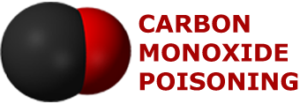Two people were hospitalized Monday in Maryland for carbon monoxide poisoning, according to the Baltimore Sun.
The two workers were poisoned at Aberdeen Proving Ground, a United States Army facility located in Aberdeen, Maryland.
The source of the poisoning was some equipment powered by propane that a team of contractors was using, spokeswoman Heather Roelker said.
Luckily, the facility had a carbon monoxide detector installed, and it warned the occupants of the unsafe levels of carbon monoxide.
The Army base’s crews investigated and found ten people with elevated levels of carbon monoxide in their blood.
Two people were taken to University of Maryland Medical Center for further evaluation, Roelker said. The article states that they “are expected to recover.”
Of course the article says this, but the truth is that some people experience delayed neurological sequelae in the following weeks and months after carbon monoxide exposure.
It is also true that in one study the effects of carbon monoxide were as bad if not worse in people with less severe carbon monoxide poisoning than in people with more severe carbon monoxide poisoning. From the group of less severe carbon-monoxide-poisoned patients, 39 percent had cognitive sequelae, 21 percent depression and 30 percent anxiety at six weeks. From the group of more severe carbon-monoxide-poisoned patients, 35 percent had cognitive sequelae, 16 percent depression and 11 percent anxiety at six weeks. There was no difference in the prevalence of cognitive sequelae at any time.
The article stated that only two people were taken to the hospital. Considering that the effects of CO poisoning are independent of severity, all of them probably should have been taken to the hospital to receive treatment.
Hyperbaric oxygen treatment is the one therapy that significantly reduces the risk of delayed neurological sequelae in patients with carbon monoxide poisoning. In the study “Hyperbaric Oxygen for Acute Carbon Monoxide Poisoning” by Lindell K. Weaver and colleagues, 25 percent of people treated with hyperbaric oxygen had cognitive sequelae at six weeks, while 46.1 percent had cognitive sequelae at six weeks in the normobaric oxygen group.

Leave a Reply
Want to join the discussion?Feel free to contribute!